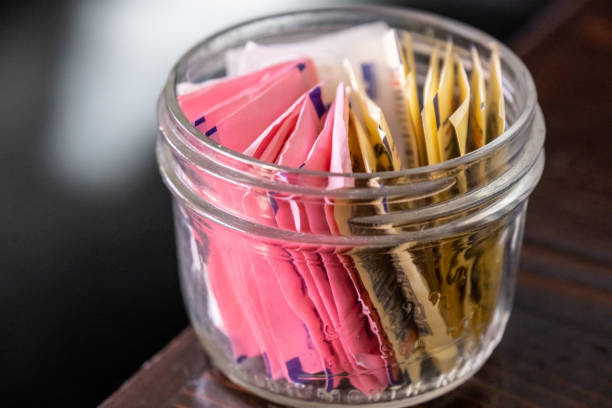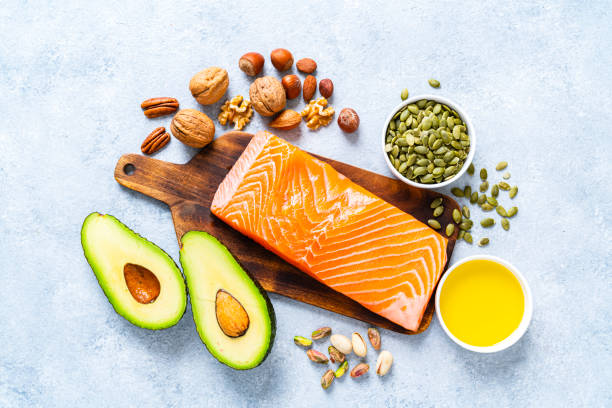When it comes to managing diabetes, diet is one of the most critical factors. The relationship between diabetes and diet is well-established, but with so much conflicting information out there, it can be hard to know what to believe. Whether it’s advice on intermittent fasting, the types of fruits you should eat, or how to handle sugar cravings, knowing the facts can help you make better choices for your health.
Can Intermittent Fasting Really Help Diabetes?
Intermittent fasting has become a popular trend for weight loss, and you might have heard that it can help manage diabetes too. While it’s true that weight loss can improve blood sugar levels, the benefits of intermittent fasting for diabetes aren’t entirely clear. Experts say that the positive effects on blood sugar come from the weight loss itself rather than from fasting.

Image from iStock
However, intermittent fasting isn’t without risks, especially for those managing diabetes. Long periods without food can lead to hypoglycaemia (low blood sugar) if you’re on certain medications or insulin. On the flip side, overeating carbohydrates during the eating window could result in hyperglycaemia (high blood sugar).
The takeaway? Before jumping into any fasting regimen, speak to a healthcare professional who understands both diabetes and diet. Your diet should be balanced, provide essential nutrients, and be something you can stick to long-term. If intermittent fasting leaves you feeling tired or stressed, it may not be the best option for you.
Are Some Fruits Off-Limits for Diabetics?
You may have heard that diabetics should avoid fruits like bananas, grapes, or mangoes because they contain too much sugar. But when it comes to diabetes and diet, no single fruit is completely off-limits. While fruits do contain sugar, they also offer essential vitamins, minerals, and fibre that are crucial for good health.
The secret lies in portion control. A general rule is to aim for two servings of fruit per day. For example, one medium apple or a small handful of grapes counts as one serving. Different fruits provide different nutrients, so varying your fruit intake can help ensure you get a broader range of benefits.
And what about the glycaemic index (GI), which measures how quickly a food raises blood sugar? While the GI of food is important, the total amount of carbohydrates you consume will have a bigger impact on your blood sugar. So, rather than avoiding fruits based on GI alone, focus on portion sizes and the overall balance of your diet.
Is Freshly Squeezed Juice Really Better Than Bottled?

Image from iStock
When thinking about diabetes and diet, you might assume that freshly squeezed juice is better than store-bought bottled juice. While fresh juice does contain natural sugars, it lacks the fibre that whole fruits provide. This fibre is important because it slows down how quickly sugar is absorbed into your bloodstream.
Also, it’s much easier to consume more sugar when drinking juice compared to eating the whole fruit. For example, a glass of orange juice could require up to four oranges, whereas you’d likely feel full after eating just one or two.
For people with diabetes, sticking to whole fruits rather than juice is generally a better choice.
Are Artificial Sweeteners a Healthier Option?
There’s a common belief that switching from white sugar to alternatives like honey or coconut sugar is better for diabetes management. Unfortunately, this is a myth. All forms of sugar—whether white, brown, or natural—affect your blood sugar in a similar way.

Image from iStock
That said, artificial sweeteners like stevia can be a better option. They don’t raise blood sugar levels and can help with managing weight. However, like anything, moderation is key. Just because they don’t affect your blood sugar doesn’t mean you should consume them in large amounts.
Sugar alcohols like sorbitol and xylitol are another option. They have fewer calories than sugar and don’t raise blood sugar as much. But keep in mind that consuming too much can lead to digestive issues, such as bloating or diarrhoea. So, as tempting as it is to go overboard with sweeteners, it’s best to keep them to a minimum.
Should You Choose Fats Over Carbs?
For those managing diabetes, it might seem logical to reduce carbs and increase fats since fats don’t raise blood sugar. While it’s true that fats can slow the absorption of sugar, a high-fat diet can lead to other complications, such as weight gain, which can make diabetes harder to control.

Image from iStock
The key is to focus on healthy fats. Sources like olive oil, avocados, nuts, and seeds are good for heart health and provide important nutrients. Aim to get about 25–30% of your daily calories from healthy fats while keeping saturated fats and trans fats (like those found in fried foods) to a minimum.
Do Supplements Help with Blood Sugar Control?
You might have heard about supplements like cinnamon, bitter melon, or fenugreek being recommended for better blood sugar control. However, there’s little evidence that these supplements actually work. While some people prefer the idea of “natural” remedies, it’s important to remember that supplements aren’t as well-studied or regulated as prescription medications.
If you’re curious about trying supplements, talk to your doctor first. Some supplements can interact with your medications, so it’s essential to get professional advice before adding anything new to your routine.
Final Thoughts on Diabetes and Diet
When it comes to diabetes and diet, it’s easy to feel overwhelmed by all the information out there. But the key to success is balance and sustainability. Whether you’re considering intermittent fasting, switching to artificial sweeteners, or trying to make sense of sugar myths, always aim for a diet that is nutritious, balanced, and tailored to your lifestyle.
Above all, consult with healthcare professionals who can guide you through the best diet for managing diabetes. Making small, manageable changes will have a long-lasting positive impact on your health and help you better control your blood sugar.
 Together Against RSV
Together Against RSV SG60
SG60 Pregnancy
Pregnancy Parenting
Parenting Child
Child Feeding & Nutrition
Feeding & Nutrition Education
Education Lifestyle
Lifestyle Events
Events Holiday Hub
Holiday Hub Aptamil
Aptamil TAP Recommends
TAP Recommends Shopping
Shopping Press Releases
Press Releases Project Sidekicks
Project Sidekicks Community
Community Advertise With Us
Advertise With Us Contact Us
Contact Us VIP
VIP Rewards
Rewards VIP Parents
VIP Parents
